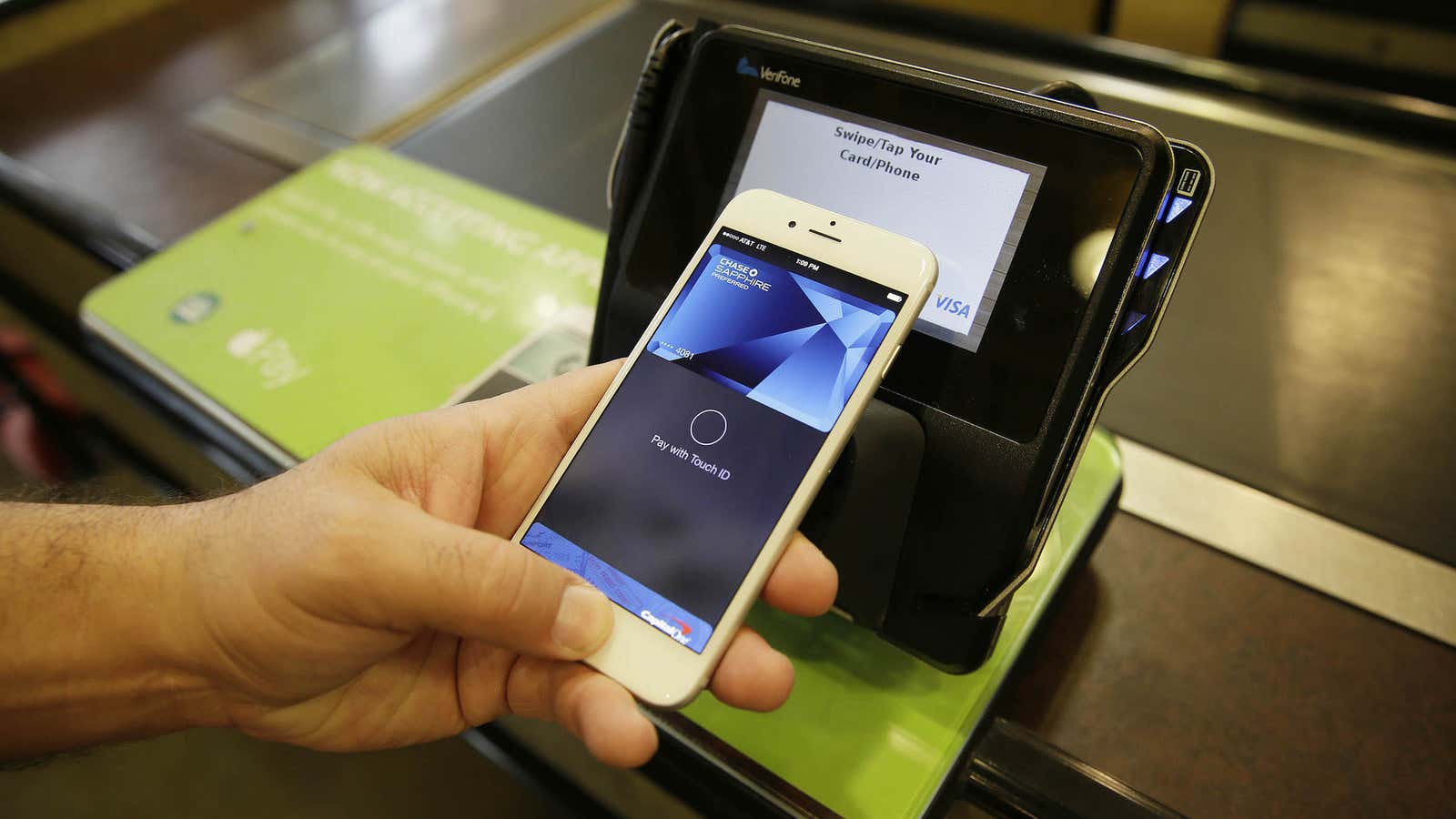Apple, Google, and Samsung have spent a lot of money on advertising to raise awareness of their mobile wallets. But if they actually want people to start using them, they might want to do a better job explaining not just the convenience, but the security advantages such offerings have.
According to a new survey by Protiviti, a research and business consulting firm, a majority of respondents thought that cards using magnetic stripes were as or even more secure than mobile wallets.
In reality, magnetic stripe cards are one of the least secure payment methods available. That’s why the UK, Canada, and Australia shifted toward chip cards years ago, and the US made a push in that direction last month.
But while chip cards are more secure than magnetic stripe cards—something the survey respondents understood—mobile wallets are widely considered by payments experts to be more secure than both. Using a technology standard called tokenization, mobile wallets randomize your credit or debit card number during a transaction. Since a random string of digits is sent to a retailer instead of actual account numbers, it’s much more difficult for hackers to steal customers’ financial information from stores (something they’ve done frequently over the last few years).
Recent research has found that mobile wallet usage is increasing, but is still low. Explaining all the benefits to consumers more effectively could go a long way in changing that.
